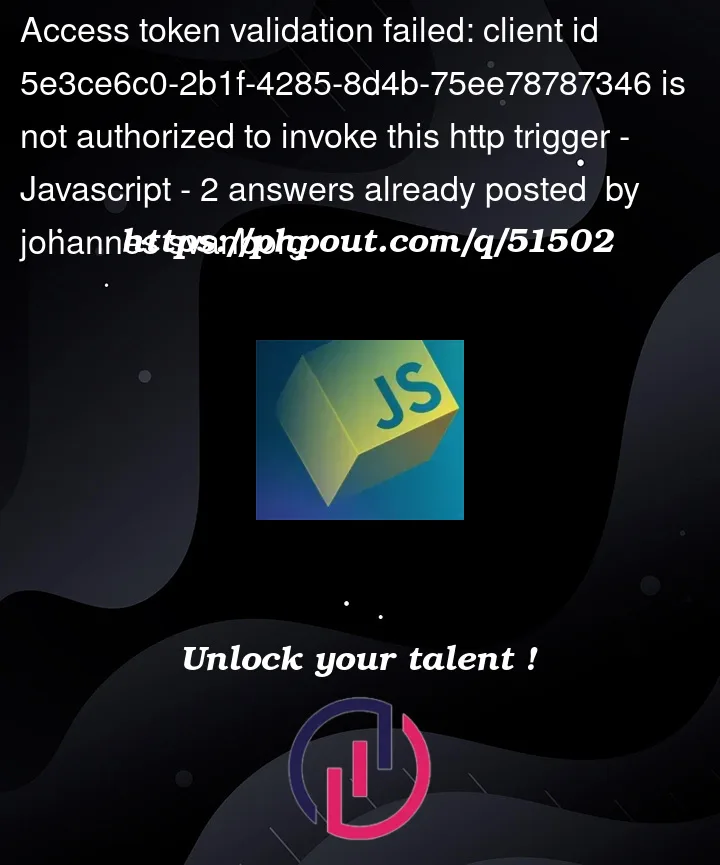I have a teams application created using teams toolkit in vscode that i am working on at the moment.
I have added a Azure function to the application aswell. I can call that function in a local debug. But when i try to call the function after it has been deployed to Azure i am getting this error:
Access token validation failed: client id 5e3ce6c0-2b1f-4285-8d4b-75ee78787346 is not authorized to invoke this http trigger
I have the AAD Application setup as a multitenant app following this guide https://github.com/OfficeDev/TeamsFx/wiki/Multi-tenancy-Support-for-Azure-AD-app
My fetch call looks like this in my code
const teamsfx = new TeamsFx();
const accessToken = await teamsfx.getCredential().getToken("");
const response = await fetch(
`${process.env.REACT_APP_FUNC_ENDPOINT}/api/POST_request_to_db`,
{
method: "POST",
headers: {
"Content-Type": "application/json",
Authorization: `Bearer ${accessToken?.token || ""}`,
},
body: JSON.stringify(requestInfo),
}
)
.then((response) => response.json())
.then((data) => {
console.log("Success:", data);
})
.catch((error) => {
console.error("Error:", error);
});
}
The app is built upon the SSO tabs template.
I am not sure if there is something wrong in the AAD Application or in the token? I tried to run teamsFX both as IdentityType App and User. but nothing works.




2
Answers
I managed to solve the problem based on what Bowen wrote. The Issue was in the bicep code. When the function was deployed it didn't get the function configuration. After that was added to the bicep loop everything worked fine!
I had a similar issue, and it turned out for me to be related to access permissions but not in the way one might expect.
Even though I am the owner of the team channel in question, with "Full" Control, a simple GET would cause problems.
First, make sure that the access token is for the correct site. It can just be blank. For example:
Second, what is returned is not the actual token itself. The actual token is a property of the access token promise that is returned. For example:
Well, these are the things that tripped me up anyway.